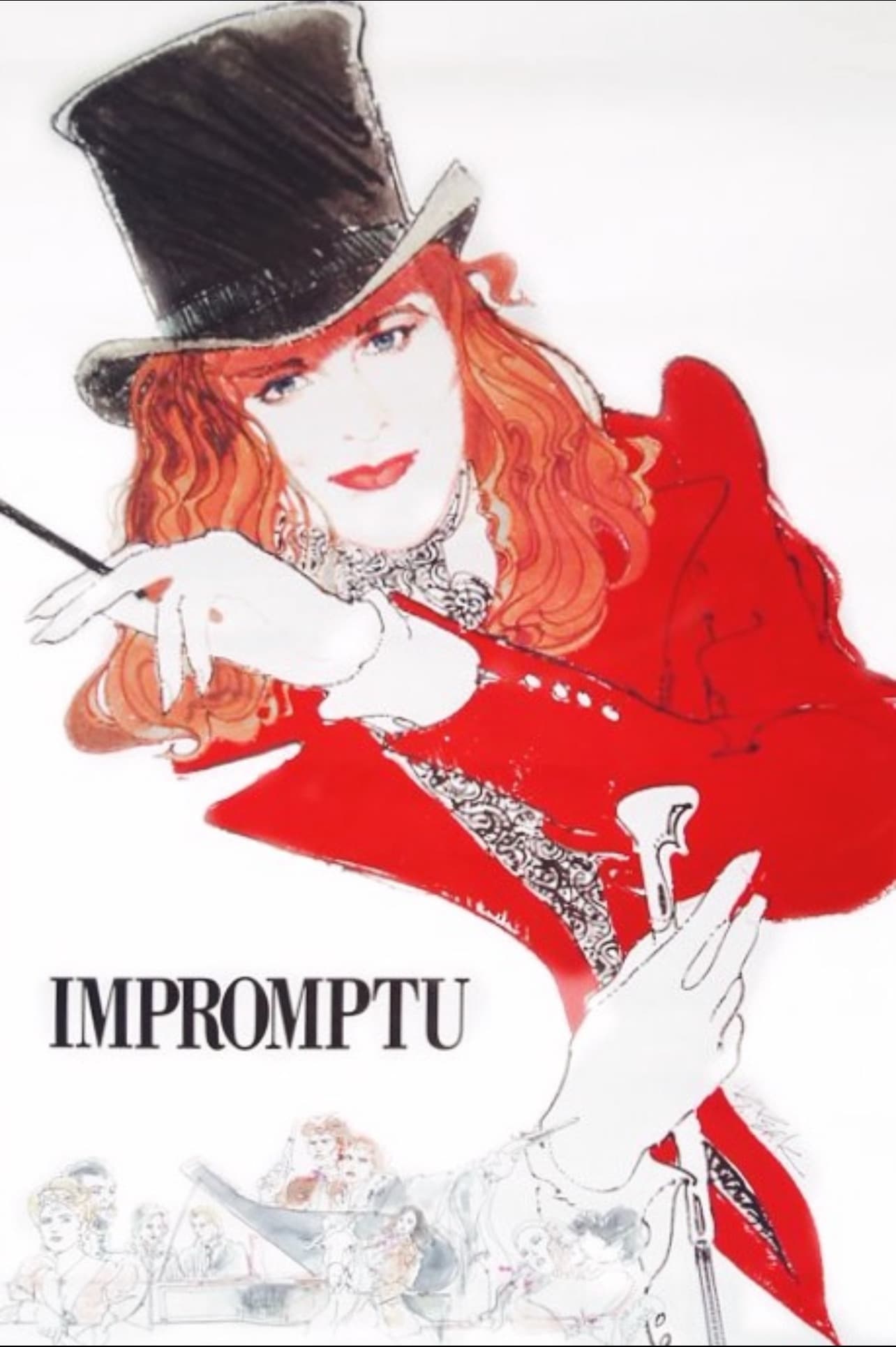
In 1830s France, pianist/composer Frédéric Chopin is pursued romantically by the determined, individualistic woman who uses the name George Sand.
23 May Impromptu (1991)
Fluid, Woven Passion
Sometimes you just like a movie.
I admit I was prepared to like this. It features Chopin, and he is a large part of my musical world. His stuff really is magical, but only when flowing through a rich vessel. The things he wrote when he was with Sands are a touchstone of sorts for sustained passion, the kind that roots you to air.
And. And it has Judy. She seems to have made some very bad choices in projects, a situation I cannot understand. But when she’s tuned in, she gives echoes of just the sort of passion I hear from Frederic. She’s tuned in here, despite the ordinary direction. Her character is close to the one that initially impressed me, in her brilliant career. Judy is capable of folded acting, giving us emotion directly from a character and at the same time standing as the writer (here, the writer) reporting that emotion and the immediate context to us. It seems to have been perfected by Australian actresses.
Plus, we have Emma Thompson. She’s so early in her career she wasn’t billed that I could find, so she was a real surprise. She inserts an Austen-derived character, a brunette, moneyed dope wishing to become sharper by rubbing against artists. The script is ordinary, riskless, surprisingly so. But it has one clever moment when the artists assembled in her country home give a play that makes serious fun of their hosts.
Two other joys; the men playing Chopin and Liszt actually do play the piano. And finally, through the whole thing we hear Chopin pieces. They aren’t performed by passionate, controlled pianists, but any Chopin in a film is welcome stuff. I think on my film site, I’ll have a list of films that have Chopin pieces as central. You’ll be surprised how many there are. “Five Easy Pieces” and “Autumn Sonata” are the obvious ones.
All this, plus a nice opening scene of our writer as a redheaded girl, are enough to give you pleasure. It almost helps that the direction and story are lifeless. They don’t challenge. Its as if we had Chopin perform for us, giving us the harvest of his pain and none of the pain itself.
Hugh Grant is wrong for Chopin, but apt for the placeholder named Chopin in this film. He has only one good scene, where he worries over an impromptu that seems contrived. It should reflect spontaneity, he thinks. It isn’t that it needs to be actually spontaneous, but that it be crafted in such a way that gives that impression. What is the impression of spontaneity?
If you have a chance, check out Martha Argerich, in her 1965 recording. You want overflowing passion that seems always on the edge of falling but is shaped smoothly? You will never be the same. Thank George Sand, I think.
The one really dire problem is that they used his piano music without regard to whether it would have been then written.
Posted in 2006
Ted’s Evaluation — 3 of 3: Worth watching.


No Comments